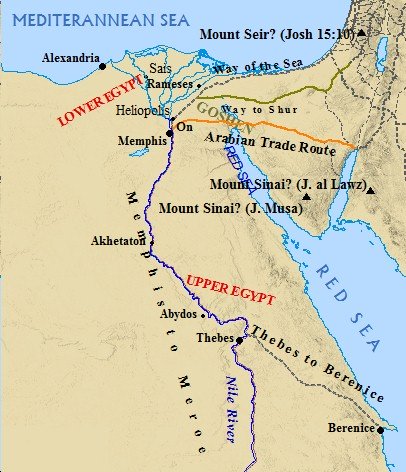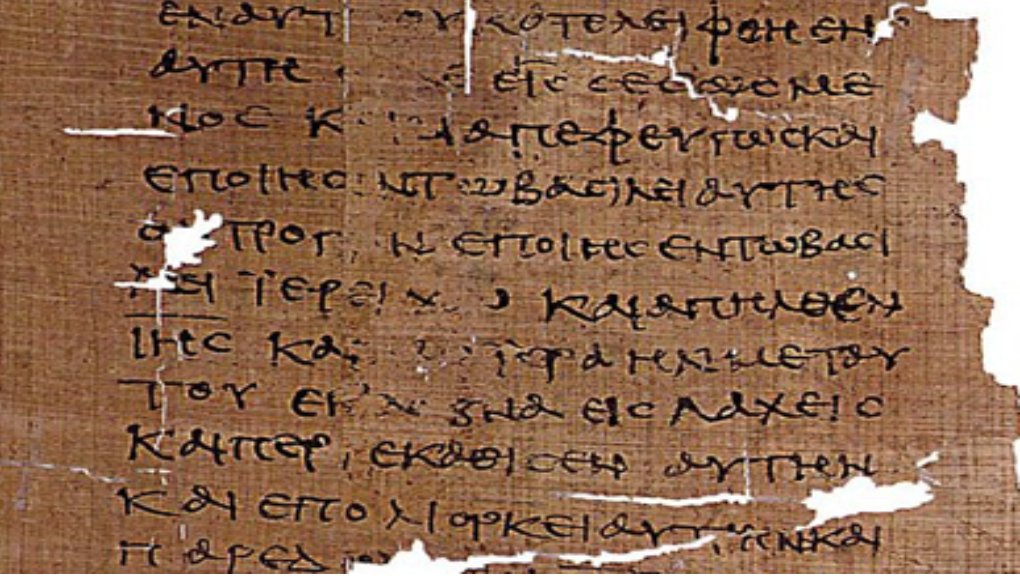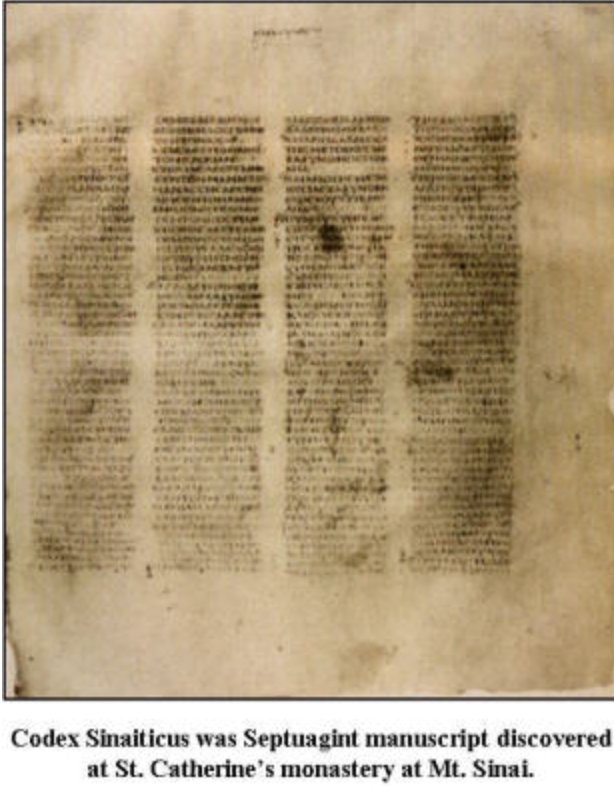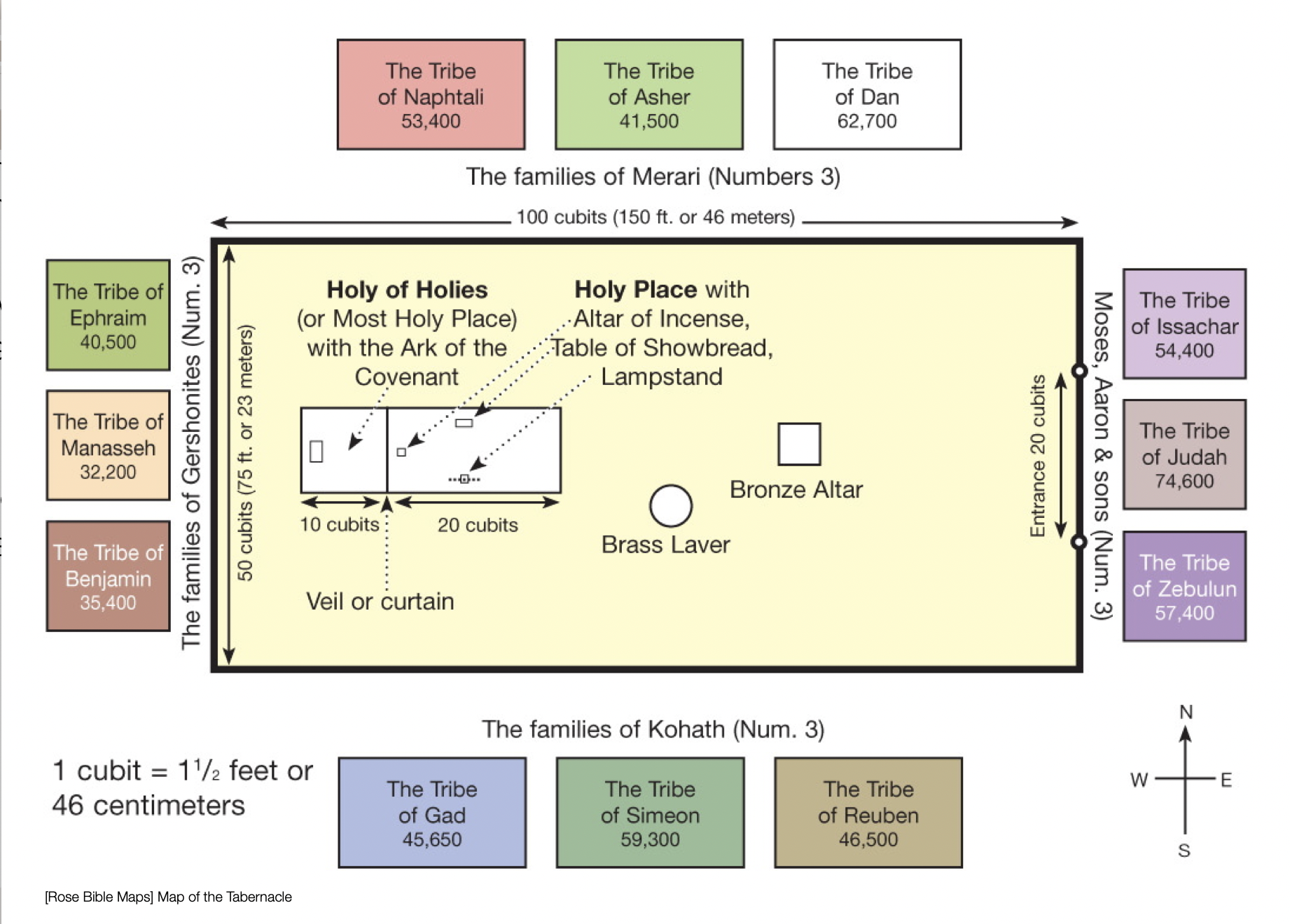VISIT OUR FACEBOOK PAGE!
The Greek Septuagint (LXX)
The Greek Septuagint (LXX)
The Septuagint was the dominant Old Testament version during the Apostolic period. The LXX is what Christ and His disciples would have read and studied from during His ministry.
From the Latin, septuaginta, literally 'seventy', often abbreviated 70 in Roman Numerals (LXX), the Greek Septuagint is the earliest surviving Greek translation of books from the Hebrew Bible.
It was written in Alexandria, Egypt. Alexandria was home to a large Jewish population during the Roman era. It has been estimated that up to 35% of the city's population was Jewish at this time. As f 2017, only 12 Jews were recorded as living in Alexandria.
Thus Alexandria was a fitting city to translate the Hebrew Bible to Greek. The LXX was started in the 3rd century B.C.E. and finished prior to 132 B.C.E. It is the oldest of several Greek versions of the Old Testament, dating from the time of Alexander the Great.
According to the Talmud, King Ptolemy placed 72 Jewish Elders in 72 different chambers, without them knowing why they were put there. He then entered each chamber, and told each Elder to write down the "Torah of Moshe, your teacher".
Upon conclusion, according to the Talmud, each version was identical to the other, as God had put the same words into the heart of each Elder.
Though the later books of the Septuagint have drawn criticism, the five books of Moses, or the Pentateuch, has been highly regarded as an accurate translation since antiquity.
|
The Greek Septuagint was written in Alexandria, Egypt. This was the first copy of the Hebrew OT into Greek, the "English" language of its time. |
Philo and Josephus thought it to be divinely inspired. The Old Armenian, Old Georgian, Syriac, and Slavonic Old Testament finds their respective roots in the Septuagint. It is also quoted throughout the New Testament, and was highly regarded by the early Church Fathers. The LXX has very interesting things to say about the Nephilim in Genesis. The Septuagint leaves no room for debate, as the phrase bene elohim is translated as "angels of God". These are the words Christ and His disciples would have read. It logically follows they would have believed the Nephilim to be half divine beings. |
Similarly, the ancient scholars and Church Fathers had little trouble believing angels descended from heaven and had intercourse with women. William F. Albright expressed this exact notion in his book, From the Stone Age to Christianity.
"The Israelites who heard this section (Genesis 6.2) recited unquestionably thought of intercourse between angels and women."
The intensely spiritual Philo of Alexandria wrote a piece on the subject entitled, Concerning the Giants. He based this treatise on the Septuagint.
THE GREEK SEPTUAGINT COMMENTS FORUM
The Greek Septuagint & The Nephilim - click to publish your article!In his discourse, he translates the phrase exactly like the Septuagint, "angels of God". Philo believed the word "angel" could refer to both good and bad angels, just as the word "soul" applies both to good and evil beings.
Philo argued that the story in Genesis 6 was historical, and it is not a myth. Philo insisted that the incident is to teach us that some men are "earthborn", while others are "heaven born", yet the highest are "God-born".
Also worth noting is the Septuagint's translation of the word, "Nephilim". In the Greek Septuagint "Nephililm" is rendered as Gegenes.
One must keep in mind the Jewish Elders responsible for the Septuagint were writing in Greek for a Greek audience. Thus, their use of this word Gegenes is telling.
In Greek mythology, the Gegenes, or the Titans, were powerful deities. These divine beings ruled during the mythical Golden Age until they were overthrown by the Olympians in the Battle of the Titans.
This battle took place long before man, and was a major part of Greek Mythology. It would seem that the Jewish Elders wished to convey this idea of divinity to their Greek audience.
As a result, "Nephilim" became "Gegenes" in the Septuagint, meaning, beings of divine origin. Thus, the Septuagint provides further evidence the Scriptures being read and studied in the ancient times were interpreted, in certain regards, much differently than modern day interpretations.
SHARE YOUR THOUGHTS ON THE NEPHILIM. Click on the above link to give us your insights into the Septuagint and/or the Nephilim. Give us your thoughts, comments, and questions!
|
Study Resource "This is a great Greek resource for scholars and laypeople alike! Basically this is the whole Septuagint (the Greek Old Testament), in both Greek and English. There are also helpful textual and translational footnotes included when Brenton felt they were necessary." --- David Bennet (courtesy amazon.com) |
Click on the link below to view this edition of The Greek Septuagint at Amazon.com!
The Septuagint with Apocrypha: Greek and English
Back to The Greek Septuagint
Back to the Nephilim
Back to Home Page
Recent Articles
-
The Tabernacle
Feb 27, 25 04:47 PM
The Tabernacle was where Yahweh met with his people before the First Temple was built. It was also called the Tent of Meeting. -
The Tabernacle of Moses
Feb 19, 25 09:50 AM
The tabernacle of Moses was built by Moses, per instruction from God, during the Exodus out of Egypt. It represented God's presence amongst His people. -
The Ark of the Covenant
Feb 19, 25 09:46 AM
The Ark of the Covenant is one of the most mystifying objects in all of human history. It's power was so great that Israel often carried it to the front lines.
Enoch & the Nephilim: Unexplained Mysteries of the Bible
Are you intrigued by these passages from Enoch and Genesis? Have you come across these questions before? Seeking answers and explanations of mysteries has been an endeavor of man since the earliest of times. Share your thoughts and questions on the Nephilim, Enoch, the Watchers, and other Bible mysteries!
What Other Visitors Have Said
Click below to see contributions from other visitors to this page...
Why no Nephilim today? 




If, indeed, fallen angels can have sex with women and produce some sort of divine/human creature(ie.,giants) - my question is why hasn't it continued over …
The Seer 



With respect to your comments about the Nephilim. I am very familiar with that school of thought, and it is erroneous, along with the uncannonized lost …
Nephilim, sons of angels 



The Nephilim were born of human women, always male like a mule, and always sterile. The first angel to take a human wife may have been Kichunna of the …
SAMUEL the SEER
Now Available in Print & eBook on Amazon!!
POPULAR TOPICS
Learn more about these popular topics below. The Bible is full of fascinating stories, characters and mysteries!
BIBLE MAPS
Explore the land of the Old Testament! View these maps of the Bible.







